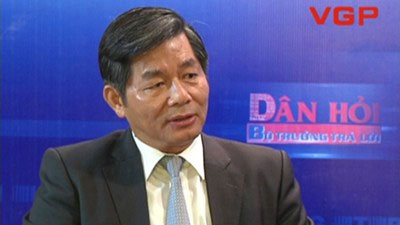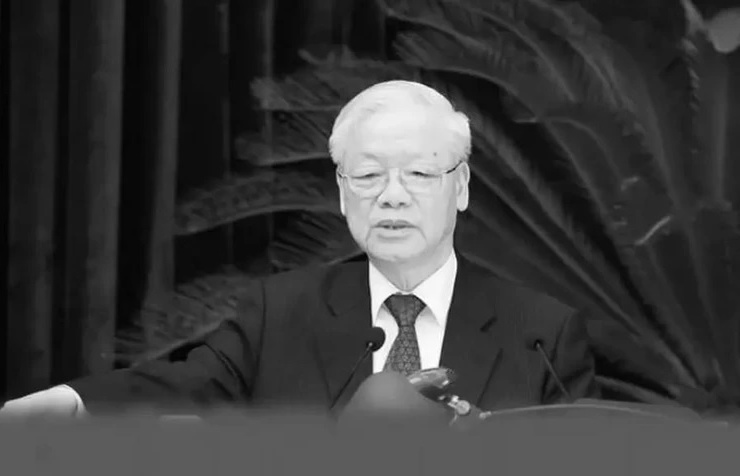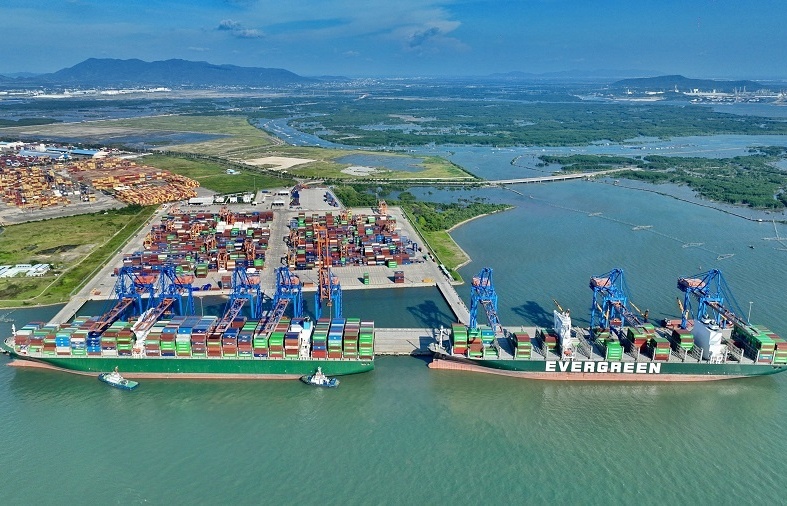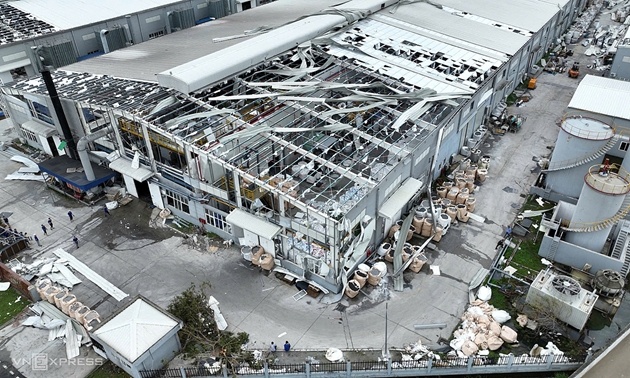An uphill battle of national economy

During an online dialogue with citizens on December 30, Vinh noted that high inflation is the major concern for not only policymakers and businesses, but also ordinary people. It is the root cause behind the need for a tight financial and monetary policy, ramifying undesired effects for all economic sectors.
There is no denying that high inflation leads to the depreciation of the domestic currency against the US dollar, high bank interest rates, and losses in business operations.
The government introduced a number of bold measures to keep 2012’s inflation in check. As a result, 2012’s consumer price index (CPI) slowed to just 6.81 percent, a marked improvement on the galloping 18.1 per cent in 2011 and 11.85 per cent in 2010.
The government has targeted bringing 2013’s inflation down to just 6 per cent, which was described as no easy task to fulfil.
Major service and commodity prices will certainly rise in line market trends, Minister Vinh explained, citing increases in the prices of medical, education and transport services, as well as in the cost of coal and electricity, to mobilise capital for reinvestment.
The nature of the market economy means such increases are inevitable. The crux of the matter is that the government plays an important role in managing this mechanism, weighing up the pros and cons of market fluctuations and their broader effects.
“We have tools in hand for calculating the national economic impact of every potential price adjustment. If the government acts carefully and closely coordinates with and between ministries, the 6 per cent CPI target will be within reach, and price increases will remain manageable,” concluded Vinh.
Difficulties ahead
Vinh acknowledged 2012 was another difficult year for Vietnam due to the domestic and global economic slowdowns. The government’s foremost priorities to stabilise the macroeconomy and rein in inflation meant the national economy slowed to a 5.03 per cent growth rate, much lower than the National Assembly’s set target.
The government’s measures also resulted in a serious employment shortage. The primary goal of the Party and State – at least while the economy continues to grow - is generating more jobs for its people. But a tight financial and monetary policy made it difficult for businesses to access bank loans, resulting in decreased social demand. A large number of businesses were forced to cut production and lay off workers.
This is unwanted consequence, confided Vinh.
The minister said that the government is determined to create a stable macroeconomic environment over the medium and long term, no matter the odds.
Vietnam can only attract investment that will fuel steady growth and production and generate jobs when the national macroeconomy is stabilised, said Vinh.
The global economy is expected not to get out of the woods yet in the foreseeable future, inflicting a further toll on Vietnam. Vietnam will therefore continue with the measures adopted to contain inflation and stabilise the macroeconomy.
Without achieving sound economic growth, we are unlikely to meet the goals of ensuring social security and improving people’s incomes, said Vinh.
In its year-end session for 2012, the National Assembly approved a resolution specifying major socio-economic targets for 2013, including a 5.5 per cent economic growth rate.
Positive signs detected in the domestic and global economies make the growth rate target achievable, said Vinh, warning that a higher growth rate would spark high inflation.
The state budget for capital construction will be cut to VND175 trillion, VND5 trillion less than in 2011. Other state capital allocations will also be lower than in 2011.
To make up losses, the government will mobilise capital from new sources. Its tools for doing so include applying an open credit policy to help businesses access bank loans, encouraging private investment, and attracting additional foreign investment through official development assistance and foreign direct investment capital.
What the stars mean:
★ Poor ★ ★ Promising ★★★ Good ★★★★ Very good ★★★★★ Exceptional
Related Contents
Latest News
More News
- Vietnam’s economy on track for 6.5 per cent growth despite Typhoon Yagi, says HSBC (October 01, 2024 | 16:46)
- Vietnam urges China to expand market access for agricultural products and strengthen trade ties (October 01, 2024 | 16:42)
- IMF predicts Vietnam's economic growth to reach 6.1 per cent in 2024 (September 30, 2024 | 18:26)
- Deli Group breaks ground on $270 million factory in Hai Duong (September 30, 2024 | 18:17)
- Government considering tax on multiple properties (September 27, 2024 | 20:17)
- Accuracy more vital than ever in dawn of AI (September 26, 2024 | 20:44)
- Vietnam remains attractive destination for US businesses (September 26, 2024 | 20:23)
- New innovation centre inaugurated during HEF 2024 (September 25, 2024 | 09:00)
- China's Geely to build $168 million automobile facility with Tasco in Thai Binh (September 24, 2024 | 19:03)
- Spate of claims made in typhoon aftermath (September 19, 2024 | 17:00)




 Tag:
Tag:


















 Mobile Version
Mobile Version